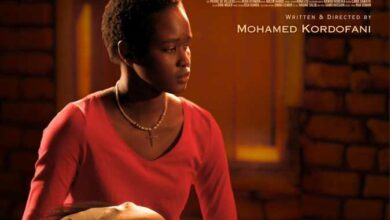One day before the announcement of the official awards of the Berlin Film Festival on Saturday, the International Federation of Critics, also known as FIPRESCI, announced its own awards for the festival.
The FIPRESCI awards are considered highly significant. Their importance has increased over the past years thanks to the secretary general of FIPRESCI, Klaus Eder of Germany, who has been reelected to lead the federation for 20 years.
He’s also a friend who I met back in 1973 when he was the member of a radical cinematic group in West Germany.
The Egyptian Association of Cinema Critics has been representing Egypt on the FIPRESCI jury since 1974. I was dispatched by the Egyptian Association to represent it this year.
The jury was composed of nine members, three of whom choose the best film in the competition. Those three were Vladimir Ignatovski, from Bulgaria, Dita Rietuma from Latvia, and myself.
All discussions among members of FIPRESCI since 1969 have been kept on the record. The decision to do so was in response to demands by critics and cinema professionals belonging to the "1968 rebels" that the debates among members of the jury be made public.
The Egyptian Association has done the same since 1974 when it introduced its own awards.
The jury announced on Thursday its shortlist for the best film award: a French movie titled "The Ghost Writer” by Roman Polanski, a Chinese film titled "Separation, Communication," and "The Thief," a film from Austria
The jury decided to meet on Friday morning to watch the last of the competition’s twenty movies: a Danish movie titled "A Family," directed by Pernille Fischer Christensen.
The Danish film subsequently won the award for best film.
"A Family" is the sixth feature film for this director, who is known as one of the most important founders of the Dogma Movement in Denmark. She previously won the award for best first feature film and the jury Grand Prix Silver Bear at the 2006 Berlin Film Festival.
The film is a low budget production that doesn’t address any political or other "hot" issues. Rather, it examines human relations, treating its subject with delicacy. It’s a film about life in its entirety.
The film can be viewed by audiences from different cultural backgrounds everywhere without making any technical concessions. Perhaps that’s why the movie was given the award for best film.
Translated from the Arabic Edition.




